Disease Overview
WHAT IS PNEUMOCOCCAL DISEASE?
Pneumococcal infections are caused by Streptococcus pneumoniae which
is the common cause of community-acquired pneumonia (CAP).2

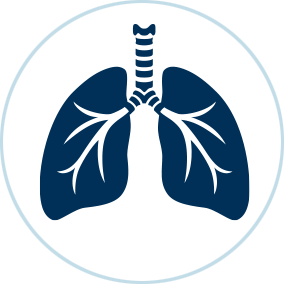

ARE YOU AT RISK?
Even if you’re healthy and active, your body’s ability to fight infections declines as you age.3 You may not realize you are at risk. Anyone can get pneumococcal disease, but some people are at greater risk for the disease than others. Being a certain age or having some medical conditions can put you at increased risk for pneumococcal disease.4
Pneumococcal bacteria spread from person to person by direct contact with respiratory secretions, like saliva or mucus. Many people, especially children, have the bacteria in their nose or throat at one time or another without being ill.4

ANYONE CAN GET PNEUMOCOCCAL DISEASE5
Your risk increases with age. If you are a smoker or suffer from certain chronic health conditions such as lung disease, chronic heart disease, diabetes, or chronic renal failure, your risk of developing Pneumococcal disease is even greater.6
YOUR RISK INCREASES IF YOU:5,6
- Are 50 years old and
older5 - Suffer from Chronic Lung Disease like
asthma6 - Suffer from Chronic Kidney
Disease6 - Suffer from Chronic Cardiovascular
Disease6 - Diseases of White Blood
Cells6 - Have HIV6*
*HIV: Human Immunodeficiency Virus
WHAT IS PNEUMOOCCOCAL PNEUMONIA?
It’s an infectious, potentially serious bacterial lung disease. In severe cases,
it could put you in the hospital.1,2
It can strike without warning. It spreads through coughing or close contact, which
means you can get it anywhere, anytime. 4
Symptoms like fever and chills can emerge suddenly. Severe pneumococcal pneumonia may require hospitalization and can be life-threatening.9
Symptoms may include:8,9
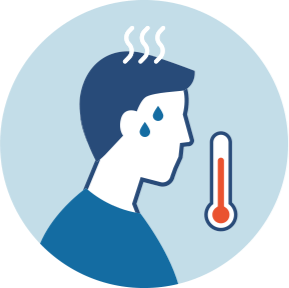
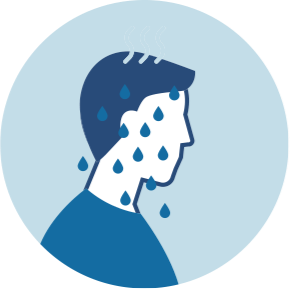


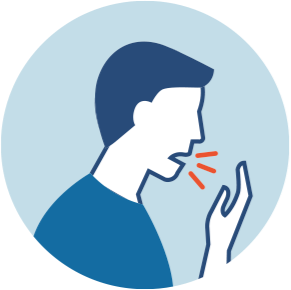
Patient Risk Factors
YOUR RISK MAY INCREASE WITH AGE.7
Pneumonia can affect people of all ages. Older adults, age 65 or older, are also at higher risk. Immune systems generally weaken as people age. Older adults are also more likely to have other chronic (long-term) health conditions that raise the risk of pneumonia.7
Older adults and those with serious illnesses or weakened immune systems might not show typical symptoms. Instead of a fever, they may have a lower temperature and could feel weak or suddenly confused.7
Adults 65+ are at 6.1x greater risk for pneumococcal pneumonia compared to healthy adults aged 18–64.10
Adults 65+ are over 10x more likely to be hospitalized with pneumococcal pneumonia than adults aged 18-49.10
YOUNGER ADULTS MAY BE AT RISK TOO.10
Adults 19 years old and above with chronic health conditions face greater risk for pneumococcal pneumonia.10
Chronic or medical conditions may include:7,11

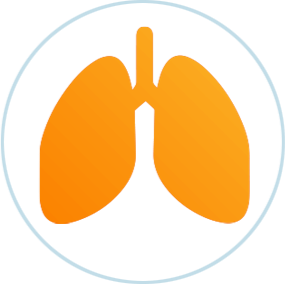



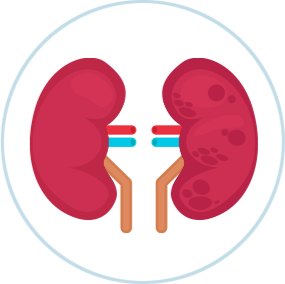

Non-functioning or
no spleen
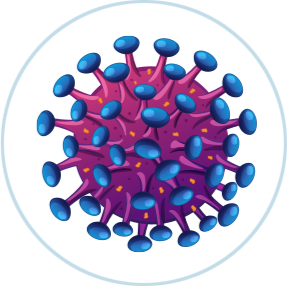
REFERENCES:
- Pneumococcal Disease (Streptococcus pneumoniae) | Disease Directory | Travelers' Health | CDC. Retrieved from: https://wwwnc.cdc.gov/travel/diseases/pneumococcal-disease-streptococcus-pneumoniae. Accessed May 2023
- Pneumococcal Infections (Streptococcus pneumoniae): Practice Essentials, Background, Pathophysiology. Retrieved from: https://emedicine.medscape.com/article/225811-overview. Accessed May 2023
- How Aging Affects Your Immune System. Health U.S. News. 2018 [cited 3 February 2020]. Retrieved from: https://health.usnews.com/health-care/patient-advice/articles/how-aging-can-affect-your-immune-system. Accessed May 2023
- Pneumococcal Disease | Transmission and Those at High Risk | CDC [Internet]. 2017. Retrieved from: https://www.cdc.gov/pneumococcal/about/risk-transmission.html. Accessed May 2023
- Ochoa, Gondar O, Vila Corcoles A, Aragon M, E PIVAC Study Group et al. Prevalence of high, medium and low risk medical conditions for pneumococcal vaccination in Catalonian middle aged and older adults: a population-based study. BMC public health. 2017 Dec 1;17(1):610.
- Shea KM, Edelsberg J, Weycker D, et al. Rates of pneumococcal disease in adults with chronic medical conditions. InOpen forum infectious diseases. 2014 Mar 1 (Vol. 1, No. 1). Oxford University Press.
- Causes and Risk Factors. (2022, March 24). Retrieved November 3, 2024, from NHLBI, NIH website: https://www.nhlbi.nih.gov/health/pneumonia/causes
- Symptoms. (2022, March 24). Retrieved November 3, 2024, from NHLBI, NIH website: https://www.nhlbi.nih.gov/health/pneumonia/symptoms
- American Lung Association. (2024). Pneumococcal Pneumonia. Retrieved November 3, 2024, from Lung.org website: https://www.lung.org/lung-health-diseases/lung-diseaselookup/pneumonia/pneumococcal
- American Lung Association. (2024). Pneumococcal Pneumonia Fast Facts. Retrieved November 4, 2024, from Lung.org website:
https://www.lung.org/lung-health-diseases/lung-disease-lookup/pneumonia/pneumococcal
#:~:text=Adults%2019%20or%20older%20with,greater%20risk%20for%20pneumococcal%20pneumonia. - CDC. (2024, February 14). Pneumococcal Disease: Causes and How It Spreads. Retrieved November 4, 2024, from Pneumococcal Disease website: https://www.cdc.gov/pneumococcal/causes/index.html
#:~:text=Chronic%20lung%20disease%20includes%20chronic,or%20other%20inherited%20blood%20disorders